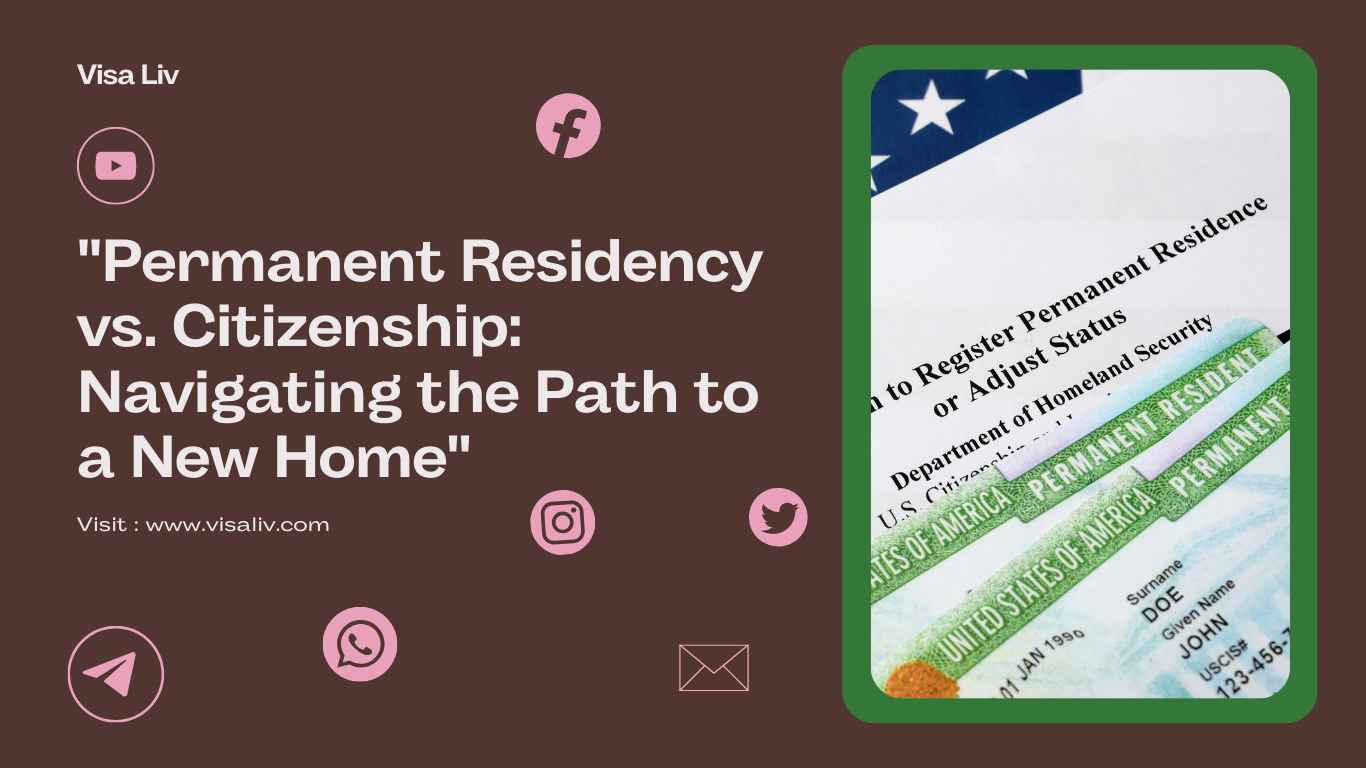Introduction:
In a world that is increasingly interconnected, people often find themselves contemplating the prospect of relocating to a new country. Whether for better opportunities, a change in lifestyle, or simply seeking refuge, the decision to move brings with it a myriad of considerations. Among these, understanding the distinction between permanent residency and citizenship is crucial. In this blog post, we will delve into the differences between permanent residency and citizenship, shedding light on the unique advantages and responsibilities that come with each status.
Permanent Residency:
Permanent residency is a legal status granted to foreign nationals that allows them to reside in a host country on a long-term basis. While specific terms and conditions vary from country to country, there are common features associated with permanent residency:
- Residence Rights: Permanent residents have the right to live and work in the host country indefinitely, enjoying many of the same privileges as citizens.
- Limited Civic Rights: Despite residing in the country for an extended period, permanent residents do not possess the full spectrum of civic rights. They typically cannot vote in national elections and might have restrictions on certain government jobs.
- Renewal Requirements: Permanent residency is not an irrevocable status. Residents are often required to renew their status periodically, complying with certain conditions to maintain their rights.
- Path to Citizenship: In many cases, permanent residency serves as a stepping stone to citizenship. After fulfilling specific residency requirements, individuals may apply for naturalization.
Citizenship:
Citizenship is the highest form of legal status in a country, conferring a set of comprehensive rights and responsibilities. Here are some key aspects of citizenship:
- Full Civic Rights: Citizens enjoy the complete array of civic rights, including the right to vote, run for public office, and access government jobs that may be restricted for permanent residents.
- Passports and International Travel: Citizens can hold a passport of their host country, which facilitates easier international travel. Permanent residents may be subject to additional visa requirements.
- Unrestricted Residency: Unlike permanent residency, citizenship is generally not subject to renewal. Once acquired, citizenship is typically for life.
- Deeper Integration: Citizenship often implies a deeper integration into the social fabric of the country, with a stronger sense of belonging and identity.
Choosing Between Permanent Residency and Citizenship:
The decision between permanent residency and citizenship depends on individual goals, preferences, and circumstances. Some may opt for permanent residency as a long-term solution, enjoying stability without committing to full citizenship. Others may pursue citizenship to fully embrace their adopted homeland, participating in civic life and enjoying unrestricted rights.
Conclusion:
In the complex landscape of immigration, understanding the nuances between permanent residency and citizenship is essential. Each status comes with its own set of advantages and responsibilities, and the choice between them should align with personal aspirations and long-term goals. Whether on the path to permanent residency or considering naturalization, individuals can navigate their journey to a new home with clarity and informed decision-making.
Please visit our website www.visaliv.com for more details, where you will find answers to all of your visa and immigration-related questions.
Thanks,
VisaLiv Team


